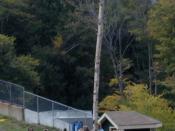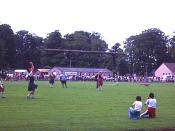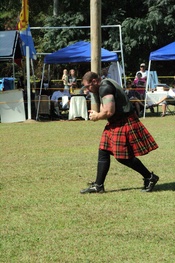Studying abroad helps you to get in contact with a different culture and this makes you think and reflect about the habits and behaviours. After a while you get to know more and more about the people, the place and especially the tradition.
Can you then understand where do these habits and manners come from?
Can you see the relation between people and their roots?
We tried to discover that through our living in Scotland as Italians and Finnish, especially looking at the very famous and ancient celebration as the Highland Games is.
HIGHLAND GAMES
" In the year of our Lord 1314, patriots of Scotland, starving and outnumbered, charged the fields of Bannockburn. They fought like warrior poets. They fought like Scotsmen and won their freedom. Forever! "
This is the spirit that moves people to celebrate their reached freedom. This is the spirit that was very deep into every mind in the old century and that now it's sometimes less clear in everybody.
The precise origins of Highland Games is unknown but in all probability they derived from the trials of strength, speed, agility and skill which were commonplace at the various religious fairs, military musters and cattle fairs of medieval and early modern Scotland.
Origins of the Games ?Foot-racing, horse-racing and wrestling were a common feature of St Michael's Day (29 September) celebrations while other racing and athletics contests sprang up at fairs on the various holy days as well as at cattle fairs on the quarter days of the Scottish calendar. The clans' warriors used these events to test their physical prowess in much the same way as modern soldiers engage in physical training. According to one source, it was at one such muster in 1574 that 'tossing of ye barr' (caber-tossing) first appeared on record.


